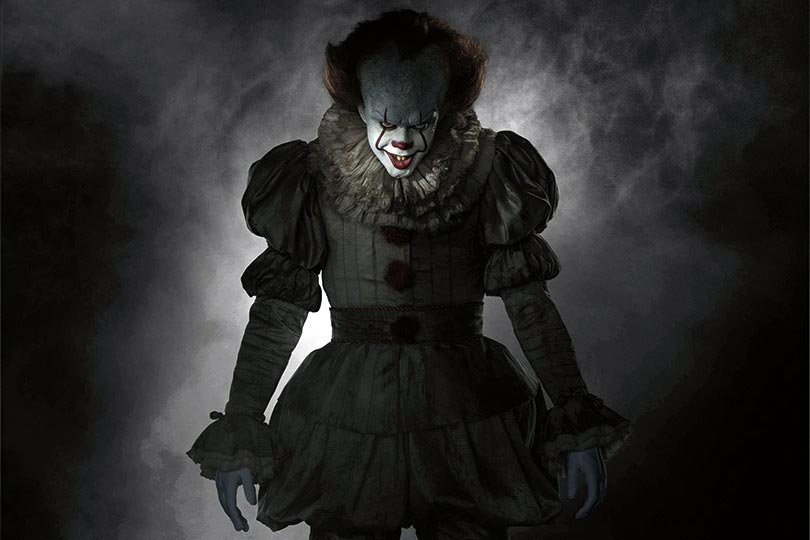I read Stephen King’s It when it came out in 1986, and even if that’s suddenly a hell of a long time ago, I do recall having a vague and queasy suspicion at the time that perhaps King, the undisputed master of modern horror, had at last jumped the shark — that the novel, despite its significant strengths, tended toward the bloated and formulaic, being regurgitative, cheap in a tawdry way, and somehow indicative of a macabre genius that was finally starting to parody and cannibalize itself.
Plus, there was that scene in the novel of the 13-year-old gangbang, but apparently nobody wants to talk about that bit of weirdness. It certainly isn’t dealt with in the latest It adaptation, ably if somewhat generically directed by Andy Muschietti.
It’s not that It is a bad film, per se; in fact, to all outward appearances, it’s a solid, above-average Hollywood horror film: well acted, well shot and decently paced, if a tad long-winded. Pennywise, the evil clown that terrorizes the gang of children in the fictional town of Derry (set, unlike the novel, in the 1980s), is especially scary. His first appearance in the gutter is a hoot.
The problem for me was one of atmosphere and tone. There are all different kids of scary, ranging from the giddy thrill of riding a rollercoaster to the terror of having a cocked pistol pointed at your head, and everything in between. It falls distinctly, and disappointingly, in the former category, to the degree that its carnivalesque desire to scare you undermines its own claims to creepiness.
Nothing much feels at risk in this film. There’s no real threat. The seatbelt is always on.
In other words, It never moves beyond its own movie-ness. Each incarnation of the supernatural evil stalking the town of Derry — from zombie-like lepers to spewing blood to howling deformed paintings come to life to spasmodic clowns — is meant to scare the audience rather than the kids on screen, to the extent that it never feels like anything is truly at stake.
Yes, the interactions of the “Losers Club,” the young teens who band together to battle Pennywise, are touching and funny and sad, in the way Stand By Me (based on King’s novella “The Body”) was touching and funny and sad; the entire film is suffused in an overweening atmosphere of adolescent nostalgia — in the sounds and smells of summertime kids awakening to their own confused, conflicted sexuality, limning on the terrors of adulthood, all under the metaphorically profound threat of an annihilating presence that brings your deepest fears to life.
But, as director, Muschietti treats it all so orthodoxly, so by-the-numbers, it’s difficult to tell whether he’s trying to please King fans or simply avoid offending them. The result is a film whose finest elements are lost in an epic sprawl that tries to cover too much ground — sort of like the novel itself. It can’t decide whether it wants to be Nightmare on Elm Street or Stand By Me, and it ends up being a little bit of both but not much of either, in a jack-of-all-trades way.
Let me add, in all fairness, that you might not want to take my word for it. Among the eight people I watched the film with — smart folks, all of them — I was definitely alone in my lukewarm response to the movie. They loved it. Seeking approval, I suggested to my friends that It might indeed work better if viewed as a sort of anarcho-syndicalist metaphor for the way Trump has terrified the country: You know, President Pennywise, making your every fear come true, and killing us all off one by one. Hope definitely does not float.
That got a chuckle, but mostly I was relegated to the outskirts of good opinion, where I likely belong — a reject who can’t even get into the “Loser’s Club.” It figures, and It only goes to show. Oh well, fuck It. (Cinemark 17, Regal Valley River)
